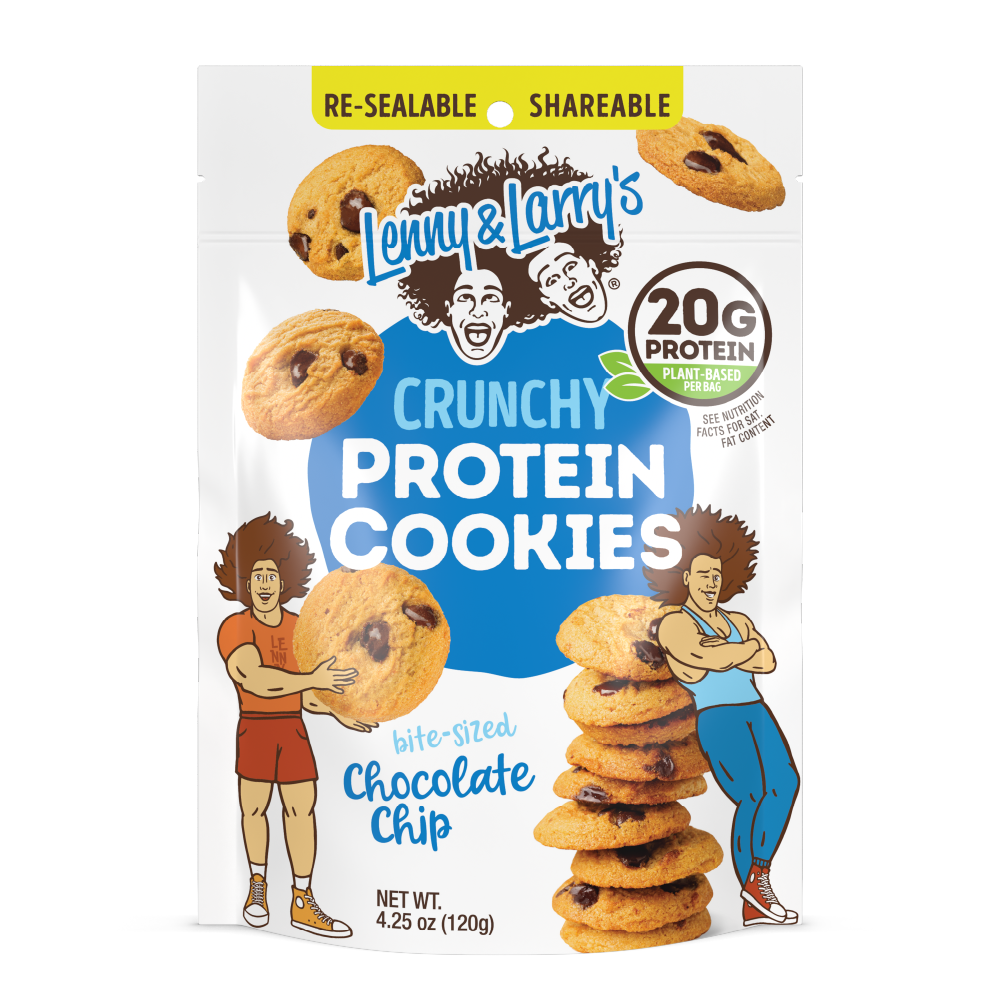UPDATED October 2025.
Eating nutritious foods is a significant component of leading an optimally healthy life. The World Health Organization advocates consuming nutrient-dense meals to maintain good health and well-being moving into the new year.
We've researched 10 top superfoods to help you achieve healthier living in no time. Packed with essential vitamins, minerals, and anti-inflammatory properties, these powerhouses can give your body what it needs for ultimate wellness. So go ahead and start eating healthier in 2023.
Ten of the top superfoods you need to be consuming:

Avocados
Hass avocados, the most prevalent commercial avocado cultivars worldwide, are a remarkable amalgamation of essential nutrients and significant phytochemicals. This dark-skinned, pebbly-textured avocado variety provides a robust nutritional profile that goes beyond its typically appreciated healthy fats. Though the formal serving size is one-fifth of an avocado, most people tend to consume half an avocado, furnishing a diverse assortment of dietary elements. This includes dietary fiber, potassium, magnesium, an array of vitamins such as A, C, E, and K1, folate, vitamin B-6, niacin, pantothenic acid, riboflavin, and choline. Moreover, the presence of lutein/zeaxanthin, phytosterols, and high-monounsaturated fatty acids fortify its nutritional potency.
The oil of the Hass avocado deserves special attention, characterized by a composition of 71% monounsaturated fatty acids (MUFA), 13% polyunsaturated fatty acids (PUFA), and 16% saturated fatty acids (SFA). This blend of fats contributes to promoting healthy blood lipid profiles and augments the bioavailability of fat-soluble vitamins and phytochemicals. This not only benefits the nutritional profile of the avocado itself but also amplifies the absorption of nutrients from other fruits and vegetables consumed alongside avocados. This quality, coupled with the Hass avocado's relatively low calorie density, makes it a valuable addition to a balanced, health-conscious diet.
The benefits of Hass avocados extend beyond their rich nutrient profile and play a meaningful role in promoting overall health. Preliminary clinical studies show that consuming avocados supports cardiovascular health, contributing to their reputation as a heart-friendly food. Furthermore, exploratory studies propose that Hass avocados could aid in weight management and healthy aging, thereby making them a holistic superfood. From their heart-healthy fats to their fiber content and essential vitamins, Hass avocados make a compelling case for their place in a healthful diet.

Beans & Legumes

Whole Grains

Greek Yogurt

Dark Chocolate

Leafy Greens
Aquatic Greens
Aquatic greens, a veritable cornucopia of the sea's bounty, play an integral role in the world of superfoods. Among the marine flora, Spirulina and Chlorella stand as remarkable powerhouses of nutrition, offering an astounding range of benefits. Often overlooked, these two tiny, single-celled algae pack a nutritional punch that can be unparalleled when compared to most terrestrial plant-based foods.
Spirulina, with its characteristic vibrant blue-green hue, is often heralded as one of the most nutrient-dense foods on the planet. It's an excellent source of protein, making it a favorite among those seeking plant-based alternatives. Additionally, Spirulina is loaded with a multitude of vitamins and minerals, including iron, magnesium, and B vitamins. But the true star quality of Spirulina lies in its incredible antioxidant and anti-inflammatory properties, attributable to its rich phycocyanin content. This antioxidant pigment is instrumental in combating oxidative damage, which is a key factor in many chronic diseases.
Chlorella, another emerald gem from the water world, is distinctively known for its detoxification capabilities. Encased in a tough cell wall, which humans cannot digest, it binds with heavy metals, toxins, and other harmful compounds, aiding in their excretion from the body. Moreover, chlorella shines brightly in terms of its nutritional profile, boasting high levels of protein, fiber, vitamins, and minerals. It’s especially lauded for its richness in Vitamin B12, a nutrient often deficient in plant-based diets. The combination of Spirulina and Chlorella creates a synergistic effect, forming a holistic nutritional profile, from detoxification to nutrient supply, thus establishing aquatic greens as a critical part of a balanced diet.

Salmon

Berries
Blueberries
Renowned as the "King of Antioxidant Foods," blueberries are a dynamic superfood that offers an impressive array of nutrients within their petite structure. Each serving of these vibrant, indigo-hued orbs delivers a potent blend of fiber, vitamins C and K, and manganese. Remarkably, a single cup provides a quarter of the daily vitamin C requirement and nearly four grams of fiber. The superfood status is amplified by their substantial concentration of bioactive compounds, including antioxidants like flavonoids and anthocyanins, which give them their distinctive blue hue. These antioxidants are key in neutralizing harmful free radicals, thereby reducing oxidative stress and potentially warding off chronic diseases like heart disease and cancer.
Beyond their antioxidant richness, blueberries carry a host of cognitive benefits. Research suggests that their regular consumption may bolster brain health, enhance memory, and slow brain aging. They have also demonstrated potential in reducing the risks of cognitive decline and neurodegenerative diseases like Alzheimer's, further elevating their superfood standing. The fiber in blueberries plays a pivotal role in maintaining gut health by fostering a balanced gut bacterial ecosystem, which is essential for comprehensive wellbeing.
In the realm of metabolic health, blueberries make a noteworthy contribution. With their low glycemic index, they're an ideal choice for those managing diabetes as they don't trigger a blood sugar spike. Blueberries exemplify the concept of nutritional synergy, where each nutrient and compound works collectively to create a greater health impact than their individual effects. Amidst a sea of superfoods, blueberries distinguish themselves as a nutrient-dense, beneficial, and delectable choice, affirming their position as an ultimate superfood.

Sweet Potatoes

Nuts & Seeds
What Are the Best Budget-Friendly Superfoods You Can Buy at the Grocery Store?
You don’t need to shop at expensive health markets to eat nutrient-dense foods. Many of the best superfoods sit right on your local grocery shelf—affordable, accessible, and packed with benefits that support daily health and energy.
Here are some budget-friendly superfoods to look for next time you shop:
- Oats – A powerhouse of soluble fiber that supports heart health and steady energy. Add them to overnight oats or smoothies for long-lasting fuel.
- Beans and Lentils – Packed with plant-based protein and fiber, these shelf-stable staples help support muscle recovery and digestion.
- Eggs – One of the most complete and affordable protein sources available. Use them in breakfast scrambles, salads, or grain bowls.
- Frozen Berries – Flash-frozen at peak ripeness, they retain antioxidants and vitamins while costing a fraction of the price of fresh produce.
- Canned Salmon or Tuna – Rich in omega-3 fatty acids, these offer brain and heart benefits without the cost of fresh fish.
- Spinach and Kale – Inexpensive greens filled with vitamins A, C, and K that support immunity and bone strength.
- Greek Yogurt – Loaded with probiotics and protein that promote gut health and satiety.
- Sweet Potatoes – Affordable complex carbs with beta-carotene, fiber, and natural sweetness that pairs well with both sweet and savory dishes.
- Peanut Butter or Almond Butter – Healthy fats and protein in one spoonful—ideal for pre- or post-workout snacks.
- Whole-Grain Bread or Brown Rice – Simple staples that add fiber and sustained energy to your meals.
Which High-Protein Plant-Based Superfoods Help Build Muscle and Improve Overall Health?
Plant-based eating doesn’t mean giving up on protein. You can find plenty of powerful superfoods that help support strength, recovery, and overall health—no meat required. These foods pack amino acids, fiber, and micronutrients that keep your energy steady throughout the day.
Here are some top plant-based superfoods rich in protein:
- Lentils – One cup provides roughly 18 grams of protein along with iron and folate. Perfect for soups, stews, or salads.
- Quinoa – A complete protein source containing all nine essential amino acids. Use it instead of rice for added nutrition.
- Chickpeas – Excellent for muscle recovery, with both protein and complex carbs. Roast them for a crunchy snack or blend into hummus.
- Hemp Seeds – Loaded with protein, omega-3s, and magnesium. Sprinkle over yogurt, oatmeal, or smoothie bowls.
- Chia Seeds – When soaked, they form a gel-like texture that supports hydration and digestion while delivering 5 grams of protein per ounce.
- Edamame – Young soybeans are one of the richest plant proteins you can eat, ideal for pre- or post-workout meals.
- Almonds and Pistachios – High in protein, healthy fats, and antioxidants that support heart and brain function.
- Tofu and Tempeh – Made from soybeans, they’re versatile, dense in protein, and absorb flavor well during cooking.
- Pumpkin Seeds – Provide protein, zinc, and magnesium for muscle function and immune balance.
- Lenny & Larry’s Protein Snacks – A convenient, plant-based way to boost your daily protein intake while satisfying your sweet tooth.
What Are the Top Anti-Inflammatory Superfoods for Immunity and Gut Health?
Inflammation affects how your body heals, digests, and fights illness. Adding anti-inflammatory superfoods to your meals supports your immune system and strengthens gut balance without relying on supplements. These foods supply antioxidants, probiotics, and natural compounds that calm inflammation from within.
Here are some of the best anti-inflammatory superfoods to include in your routine:
- Turmeric – Contains curcumin, a compound studied for its inflammation-reducing properties. Add it to teas, soups, or roasted veggies.
- Ginger – Helps ease digestive discomfort and supports immune defense through natural anti-inflammatory effects.
- Blueberries – Rich in anthocyanins and vitamin C, which help protect cells from oxidative stress.
- Leafy Greens (Spinach, Kale, Swiss Chard) – Loaded with antioxidants and chlorophyll that assist detoxification and immune resilience.
- Avocados – Supply monounsaturated fats and potassium that promote heart and gut health.
- Yogurt and Kefir – Provide live probiotics that restore healthy gut flora and improve digestion.
- Walnuts – A plant-based source of omega-3 fatty acids that support joint, brain, and cardiovascular wellness.
- Garlic – Naturally antimicrobial and packed with allicin, known to support immune response.
- Olive Oil – Its oleocanthal compound offers similar benefits to anti-inflammatory medications without side effects.
- Green Tea – Contains EGCG, a potent antioxidant that assists in reducing inflammation at a cellular level.
For scientific nutrient verification and anti-inflammatory profiles, consult USDA FoodData Central or NIH’s Office of Dietary Supplements.
Superfoods make eating healthy easy.
You can start seeing and feeling the benefits quickly by incorporating these nutrient-dense foods into your diet. Remember that eating healthy doesn't have to be bland. Get creative with your meals and snacks by pairing different flavors and textures. With these ten nutritious foods, you'll be well on your way to the best version of yourself.
 Lenny and Larrys
Lenny and Larrys
